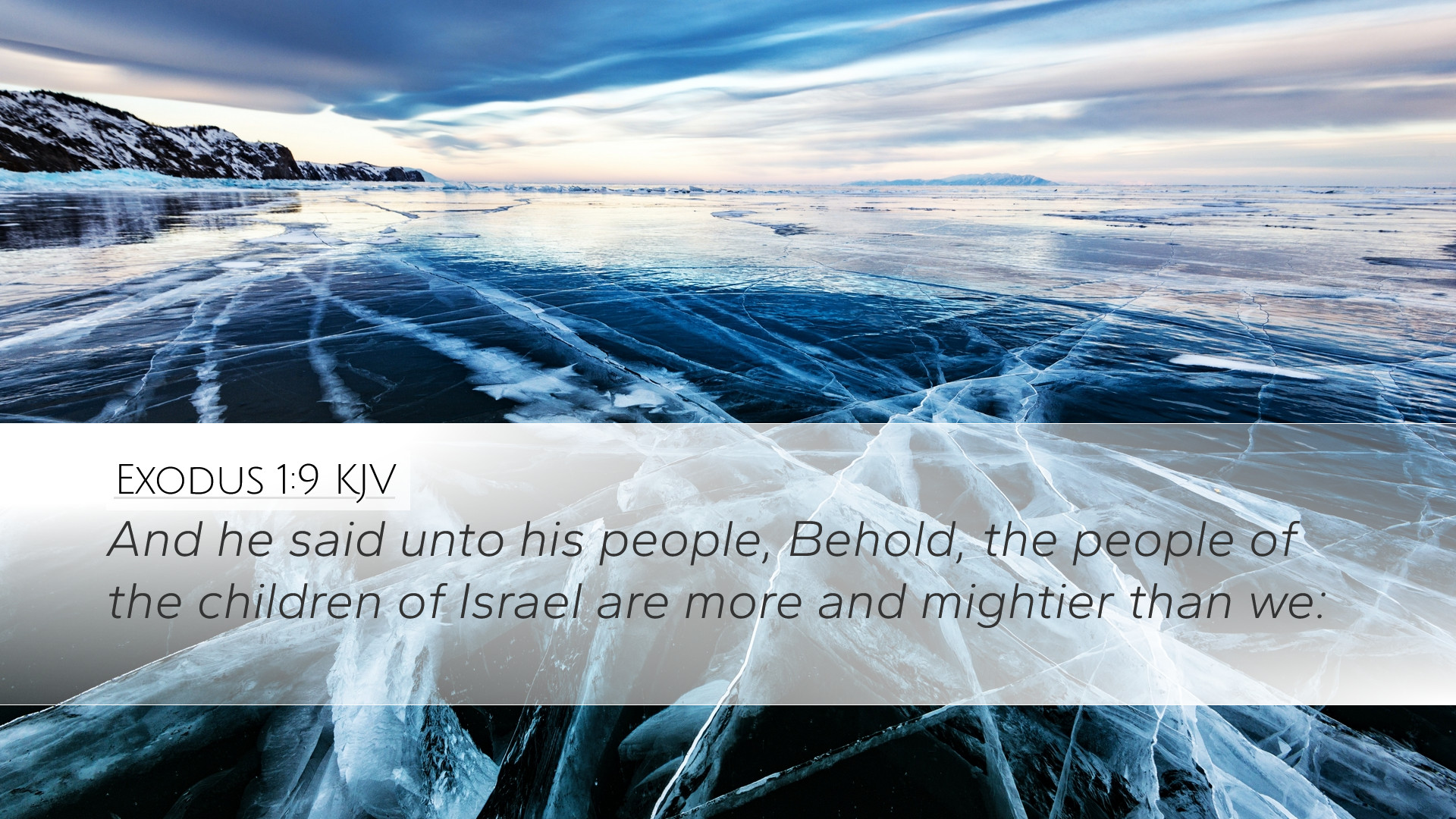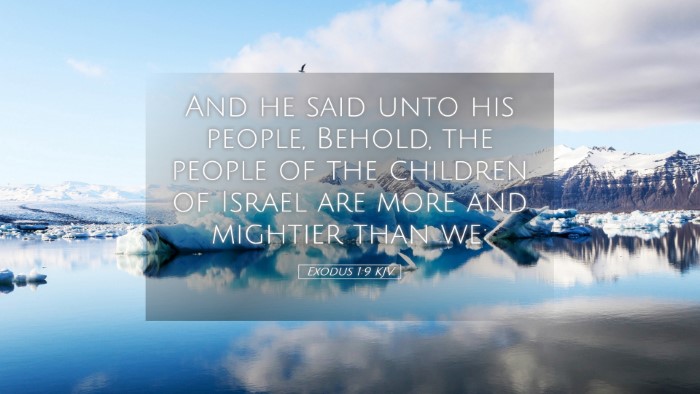Commentary on Exodus 1:9
Verse: "And he said unto his people, Behold, the people of the children of Israel are more and mightier than we:" (Exodus 1:9, KJV)
Contextual Background
Exodus 1:9 presents a pivotal moment in the narrative of the Israelites’ bondage in Egypt. Following the death of Joseph, who was once instrumental in saving Egypt from famine, a new Pharaoh arose who did not remember Joseph’s legacy. This new ruler was threatened by the substantial growth of the Israelite population and their potential influence. This verse marks the beginning of a deepening crisis that would lead to the Israelites' eventual exodus from Egypt.
Theological Themes
- The Sovereignty of God: The rapid growth of the Israelites serves to emphasize God's covenant promise to Abraham, Isaac, and Jacob, affirming divinely orchestrated events in history.
- The Nature of Oppression: Pharaoh's reaction mirrors a common theme of rulers who attempt to control or suppress what they perceive as threats to their power.
- Identity and Community: The reference to the "children of Israel" underscores the importance of community and identity among God’s chosen people.
Insights from Matthew Henry
Matthew Henry remarks on the fear of Pharaoh as reflective of the natural inclination of rulers to maintain power. This fear compels him to address the Israelites as a 'people' who are not only numerous but also 'mightier'—which Henry interprets as a sign of God’s blessing upon them. He notes that Pharaoh’s awareness of their strength should serve as a reminder of God's providential care for His people. Henry emphasizes that the more a people are blessed by God, even in oppression, the more they should expect opposition from the world.
Analysis from Adam Clarke
Adam Clarke, in his commentary, expounds on the multi-faceted implications of Pharaoh's statement. He points out the dichotomy between the Egyptians’ perception of the Israelites as a threat and their historical role as servants to the crown. Clarke highlights the irony in their situation; while the Egyptians once benefited from Joseph's wisdom, the current Pharaoh’s paranoia blinds him to past alliances. Furthermore, Clarke articulates that Pharaoh's remark sets the stage for the ensuing oppression that culminates in divine intervention, illustrating God’s power to deliver His people in the face of overwhelming odds.
Insights from Albert Barnes
In his analysis, Albert Barnes asserts that the Pharaoh's fear is unjustified and illustrates the common human tendency to fear the unknown. He states that the Israelites’ demographic growth should have led to fruitful coexistence rather than oppression. Barnes emphasizes that God’s hand is at work and that this fear will lead Pharaoh to make decisions that ultimately fulfill God’s redemptive purposes. The verse signifies a crucial transition, as the Israelites’ suffering will precipitate their eventual deliverance through Moses.
Practical Applications for Today
- Understanding God's Plans Amidst Fear: Just as Pharaoh feared the Israelites, modern believers often face fear regarding their circumstances. Recognition of God’s sovereignty can guide believers to trust His plan, even when threatened.
- Community and Identity in Christ: The collective identity of the Israelites serves as a reminder for believers today to gather strength through community, recognizing their shared identity in Christ against external pressures.
- Confronting Oppression: This passage calls individuals and communities to stand firm against oppression and injustice, taking inspiration from God's eventual deliverance of His people.
Conclusion
Exodus 1:9 is a significant verse that encapsulates themes of fear, identity, and divine providence. The insights drawn from respected commentaries by Matthew Henry, Adam Clarke, and Albert Barnes reveal the complexity of the human experience in relation to God’s overarching plan. As this narrative unfolds, it invites pastors, students, theologians, and Bible scholars to reflect on the nature of God’s sovereignty and His unwavering commitment to His people, even amidst trials.


